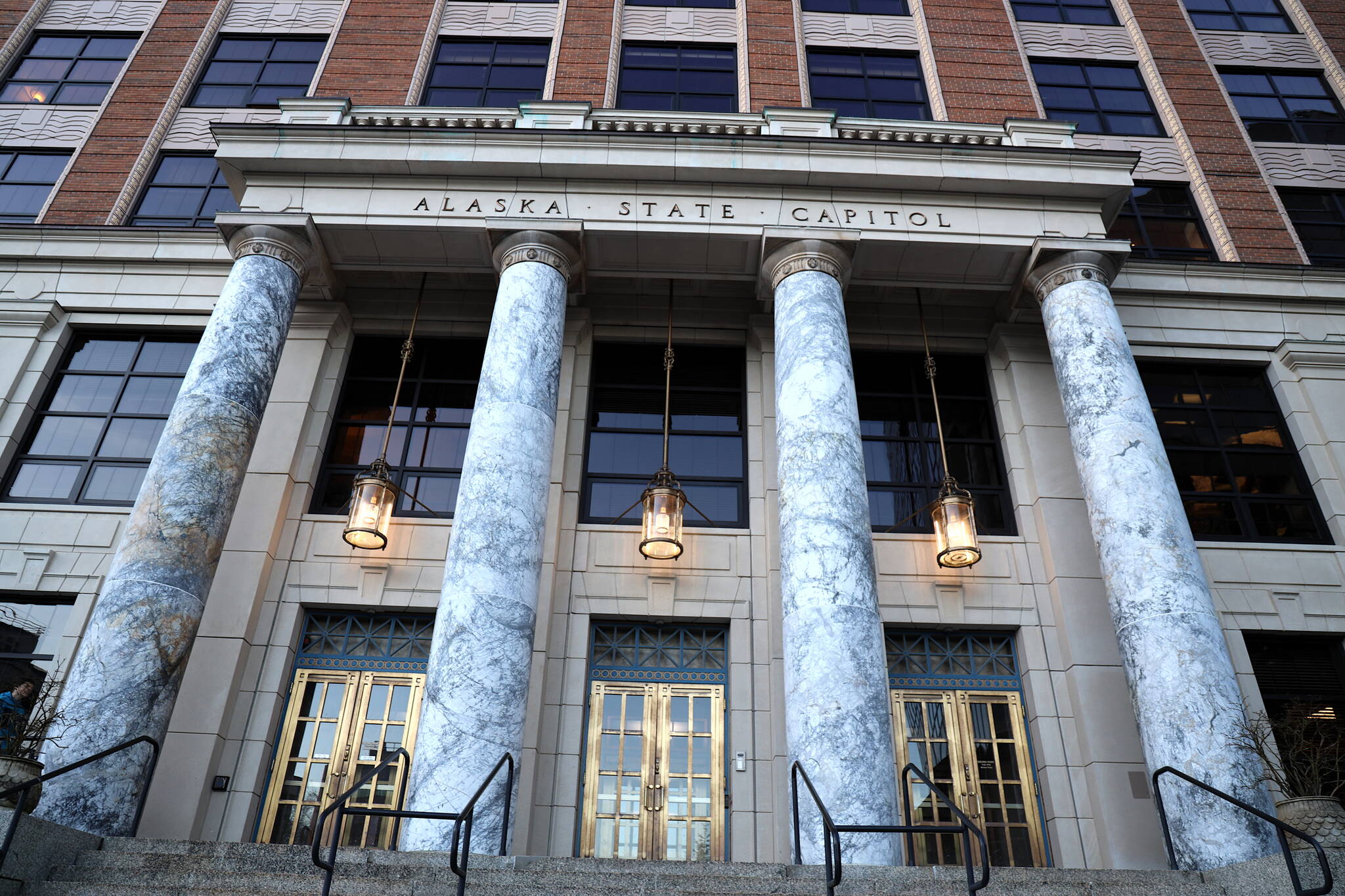The state Senate was right to unanimously reject giving a 20% pay raise to Gov. Mike Dunleavy. Not because he’s failed to deliver a sustainable budget plan, which was the most important task on his plate when he assumed office four years ago. The State Officers Compensation Commission, which recommended the raise, isn’t supposed to consider the incumbent’s performance. Doing so would inject politics in a place where it was never intended to be.
But the argument made by Sen. Bert Stedman, R-Sitka, for rejecting raises for the governor, Lieutenant Governor and commissioners is nonsense.
The SOCC based its decision on the fact the governor’s office hasn’t seen a raise since 2011. If they’d applied the cumulative rate of inflation, the figure would be almost $193,000. But even the recommended salary of $176,000 is still $22,000 more than what the governor of Texas earns in the second largest state in area and population. And more than governors in all but nine states.
Such comparisons would have been a legitimate reason to reject the SOCC’s recommendation. But Stedman stated they failed to include a “comprehensive plan for compensation” to “attract smart, dedicated and motivated leaders to the state of Alaska.”
Senate President Gary Stevens, R-Kodiak, added the Legislature needed “to give up on that commission” because they’ve “never done their job or looked at things seriously.”
The SOCC was created by the Legislature in 1976. Their duties are to “review the salaries, benefits, and allowances of members of the legislature, the governor, the lieutenant governor, and each principal executive department head and prepare a report on its findings at least once every two years.”
While it’s true that establishing competitive salaries can attract quality candidates for public service, Stedman’s expectation of the SOCC is well beyond the scope of their legislatively defined mission. And applying his and Stevens’ criticism suggests they should propose giving SOCC members a small salary for their efforts. Because right now they aren’t compensated at all.
I suspect the Senate’s real gripe with the SOCC is related to the recommendation they made last year to raise the pay of legislators from $50,400 to $64,000. Percentage wise, that’s bigger than what the governor would get. But they rejected it because it would have been accompanied by a $100 per day cap on per diem with reimbursement based on actual receipts. That’s $193 per day less than they were allowed to claim during the 2021 legislative session and receipts weren’t required.
Normally, daily per diem is a fixed payment in lieu of reimbursement for actual expenses while working away from home. That’s why Juneau’s delegation no longer gets to claim it. The daily cap for state employees temporarily working in Juneau for more than 30 days is $78 — $45 for lodging and $33 for meals and incidental expenses.
Why do legislators get so much more? Because their actual expenses are substantially less, it’s always served as an unofficial way to boost their salaries. So, for a 120-day session, the effect of the SOCC salary recommendation was to ask legislators to give up $23,000 that’s tax free in exchange for $13,600 that would be subject to federal income tax.
That’s why they rejected it. And why they likely felt insulted when the SOCC proposed raising executive branch salaries by so much.
But the SOCC isn’t the problem. They’re trapped in a game that’s been played so long that per diem is inappropriately understood to be a legitimate component of legislative compensation.
Reimbursement of actual housing and car rental expenses, both with reasonable caps, is justified. And like state employees in travel status, they’re entitled to a fixed amount to cover meals and incidental expenses. But the way to address salaries begins with the legislature admitting it’s wrong to use per diem to supplement theirs.
Only then can the SOCC and legislators have an honest discussion with them about how compensation affects the quality of candidates interested in public service. And properly educate the public so they’ll understand why a legislative salary increase that offsets the loss of per diem as currently structured isn’t a raise at all.
Finally, fixing this problem will mean Juneau’s delegation will be paid the same salary as the rest of the Legislature. Which would be a raise they deserve.
• Rich Moniak is a Juneau resident and retired civil engineer with more than 25 years of experience working in the public sector. Columns, My Turns and Letters to the Editor represent the view of the author, not the view of the Juneau Empire. Have something to say? Here’s how to submit a My Turn or letter.

